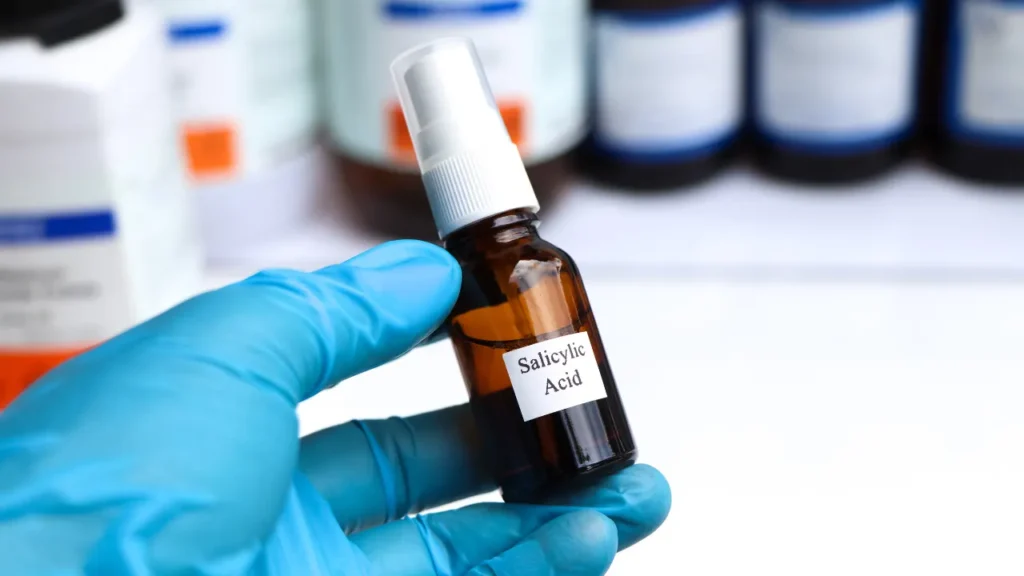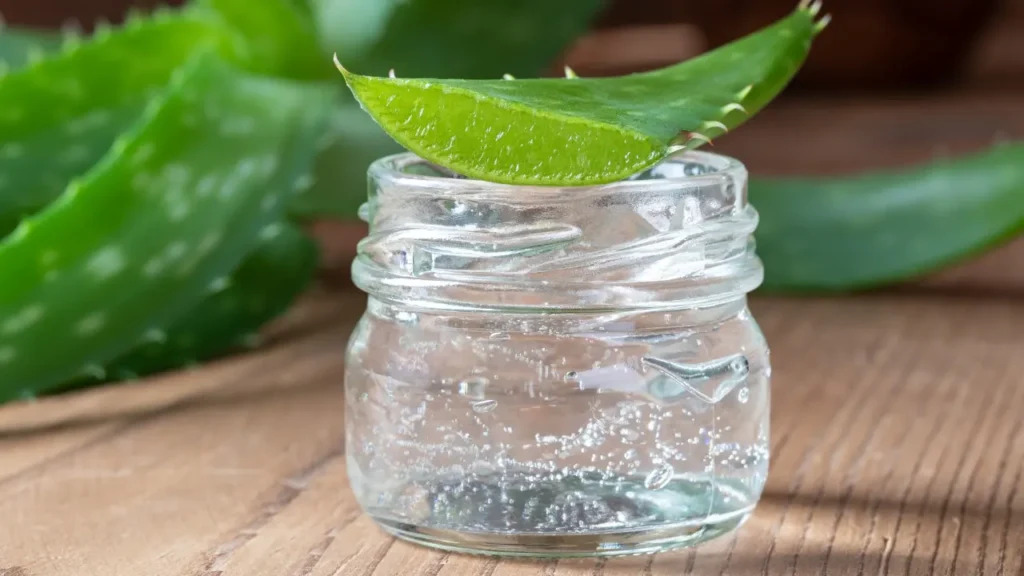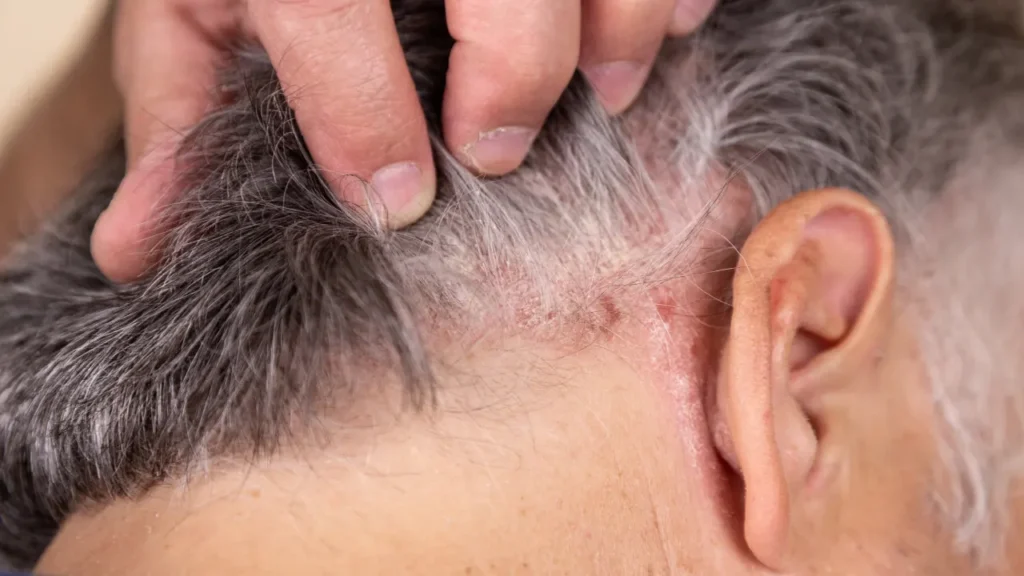Description
Scalp psoriasis is a widespread dermatological disorder that affects a large proportion of people globally. To manage this chronic condition effectively, one must be aware of its causes, and triggers, along with readily available treatments. Raised, irritated, and scaly areas appear on the scalp when psoriasis occurs. It frequently comes with discomfort, burning, and itching. The degree of the symptoms can range from minor to serious, and in some situations, they may affect more than just the scalp.
You May Also Like:
IS DR MERCOLA KRILL OIL TRULY A GREAT SOURCE OF DAILY OMEGA-3S?
NATUREMYST KRILL OIL: A REVIEW OF THE FACTS ABOUT THIS LEADING OMEGA-3 PRODUCT
Scalp psoriasis: Description, Causes, And Treatment Protocol is an original (HealthXWire) article.
Possible Causes
Although the precise etiology of scalp psoriasis is unknown, it is thought to be a result of a confluence of genetic, immune system, and environmental factors. The following are some potential causes and influencing factors: –
Immune System Dysregulation: In autoimmune disorders like scalp psoriasis, the immune system erroneously targets skin that has healthy cells, causing those cells to multiply quickly and create plaques. White blood cells called T cells are essential to this immunological response.
Genetic Predisposition: The probability of getting scalp psoriasis is increased by a family tradition with the condition. Psoriasis susceptibility has been linked to specific genes, like the HLA-C gene.
Environmental Triggers: Susceptible individuals may develop scalp psoriasis due to a variety of environmental factors. Some examples of these triggers are: –
- Injury or Trauma
People who are physically injured such as scratches, scrapes, or burns, are susceptible to developing scalp psoriasis as mentioned by the Koebner phenomenon.
- Infections
Some infections, like streptococcal throat infections, might worsen or exacerbate psoriasis symptoms. A psoriasis flare-up may result from the body’s immunological reaction to the infection.
- Stress
In those who are sensitive, psychological and emotional strain may have an adverse effect on the body’s immune system and lead to the onset or aggravation of scalp psoriasis. Stress can cause flare-ups or exacerbate already-present symptoms.
- Medications
Some people’s psoriasis symptoms have been linked to a number of pharmaceuticals, including lithium, antimalarials, nonsteroidal anti-inflammatory drugs or NSAIDs, and beta-blockers.
Hormonal Factors: Hormonal modifications, including those that take place during pregnancy, puberty, or menopause, might affect scalp psoriasis. Changes in hormone levels might affect the body’s immune response and cause symptom onset.
Lifestyle Factors: Psoriasis of the scalp may be caused by particular habits and lifestyle decisions. Smoking, binge drinking, being overweight, alongside a sedentary lifestyle are a few of these. These factors can cause more severe and more frequent flare-ups.
Exacerbating and Mitigating Factors
Factors that aggravate scalp psoriasis include: –
Cold Weather: A dry and parched scalp can worsen the symptoms of psoriasis brought on by dry air and cold weather. The absence of sunlight during the winter can also be a factor in flare-ups.
Dry Air: Low humidity and dry air may trigger dryness and irritation on the scalp, increasing the likelihood of psoriasis flare-ups.
Stress: Psychological factors and emotional stress can aggravate the symptoms of scalp psoriasis. High amounts of stress can harm the body’s immune response and trigger flare-ups.
Infections: Infections trigger the body’s immunological reaction which leads to flare-ups.
Scratching or Trauma: Itchy skin and psoriasis flare-ups can be caused by excessive scratching or injuries to the scalp. The scalp should only be handled lightly without scratching.
Medications: Several pharmaceuticals, including lithium, beta-blockers, and antimalarials, have been linked to the onset or worsening of psoriasis symptoms. Medication-related triggers should be discussed with a healthcare expert.
Scalp psoriasis mitigation factors include: –
Avoiding Triggers: The management of scalp psoriasis depends on recognizing and preventing triggers that make the condition worsen. This can entail reducing stress, guarding the scalp against excessive heat or cold, and being more cautious while taking medications that might make symptoms worse.
Scalp Hygiene: For scalp psoriasis to be controlled, excellent scalp hygiene must be maintained. Scale removal and irritation reduction are both aided by routine washing with gentle shampoos.
Stress Management: Engaging in fun hobbies or using stress-reduction strategies like yoga, deep breathing exercises, or meditation might help lower stress levels and possibly prevent scalp psoriasis flare-ups.
Moisturization: Applying emollients or moisturizers on the scalp may assist in keeping the skin hydrated and prevent dryness and scaling. One must search for products made especially for psoriasis or which contain urea, hyaluronic acid, or ceramides.
Sunlight Exposure: Psoriasis of the scalp may benefit from some natural sunshine exposure. Sunlight’s ultraviolet (UV) rays can lessen inflammation and slow down skin cell proliferation.
Lifestyle Modifications: A healthy lifestyle may improve general well-being and possibly lessen symptoms of scalp psoriasis. This includes keeping a balanced diet, engaging in regular exercise, getting enough sleep, and abstaining from smoking and binge drinking.

Standard Treatment Protocols
The traditional course of action for scalp psoriasis comprises an assortment of topical treatments, phototherapy, and systemic drugs, including the following: –
Topical Therapies: These include: –
- Corticosteroids
Several anti-inflammatory drugs can lessen scaling, redness, and itching. They come in a variety of strengths and types, including lotions, creams, solutions, and foams.
- Coal Tar
Coal tar aids in reducing inflammation and slowing the proliferation of skin cells. It is offered in ointments, creams, gels, and shampoos.
- Salicylic Acid
This component is used in shampoos, lotions, gels, and ointments to help eliminate scales.
- Vitamin D Analogues
These artificial vitamin D forms control the development of skin cells and lessen inflammation. They come in ointment, cream, and scalp solution forms.
- Calcineurin Inhibitors
Pimecrolimus and tacrolimus are examples of topical calcineurin inhibitors that can provide short-term relief for delicate regions including the scalp and face.
Phototherapy: These include: –
- Psoralen Plus Ultraviolet A or PUVA Therapy
Psoralen, a medicine, is taken as part of this treatment, and the skin is then exposed to the UVA rays. Although it may be useful in lowering symptoms, caution is advised for its possible side effects.
- Ultraviolet B or UVB Therapy
Skin cell development and inflammation can be slowed down by UVB sun exposure. In a medical context, it is frequently administered under close control.
Systemic Medications: These include: –
- Methotrexate
This oral medicine lowers inflammation while suppressing the immune system. Usually, it is applied to severe instances of scalp psoriasis.
- Biologics
Specific immune system components associated with psoriasis are the focus of biologic drugs including TNF-alpha inhibitors, PDE4 inhibitors, and interleukin inhibitors. They need strict supervision and are often saved for moderate to serious cases.
- Retinoids
Retinoids used orally, like acitretin, can lessen inflammation and inhibit the proliferation of skin cells.


Treatment Options
The following adjunct therapies might offer extra benefits in controlling scalp psoriasis along with standard treatment methods: –
Over-the-counter Formulations: Scaling, itchiness, and scalp inflammation might be lessened by using over-the-counter shampoos formulated with chemicals like salicylic acid, coal tar, or ketoconazole. Mild scalp psoriasis may be improved by daily usage.
Natural Remedies: These include: –
- Aloe Vera Gel
The psoriasis-related irritation and swelling of the scalp may be reduced by the soothing and moisturizing effects of aloe vera gel. A small amount of natural aloe vera gel must be applied to the scalp before being rinsed.
- Apple Cider Vinegar
Scalp rinsing using diluted apple cider vinegar may help in scale removal and itching relief.
- Oatmeal Baths
Warm baths with colloidal oatmeal added can help calm the scalp and lessen inflammation.
- Tea Tree Oil
When applied topically on the scalp, diluted tea tree oil’s antibacterial and anti-inflammatory qualities may offer comfort.
Herbal Remedies: These include: –
- Calendula
Calendula, commonly known as marigold, possesses anti-inflammatory qualities and can aid with scalp psoriasis symptoms. On the scalp, it can be immediately applied as an ointment or cream.
- Mahonia Aquifolium or Oregon Grape
Oregon grape extract-based topical treatments can minimize swelling and scaling.
- Chamomile
For scalp psoriasis, chamomile may be used in the form of a rinse or in conjunction with other substances.
Nutritional Supplements: These include: –
- Antioxidants
Antioxidant-rich nutritional supplements, like selenium and vitamin E, help promote good skin health and perhaps decrease manifestations of psoriasis. They can enhance general skin health and aid in immune system modulation.
- Vitamin D
Vitamin D can possess anti-inflammatory properties and is involved in immune system regulation. Vitamin D supplementation can decrease the extent of scalp symptoms associated with psoriasis.
- Omega-3 Fatty Acids
Fish oil supplements include omega-3 fatty acids, which are anti-inflammatory and may help lessen the symptoms of scalp psoriasis. They can support overall skin health and immune system modulation.
However, it is crucial to remember that the efficacy of various treatment choices can vary, even if they might offer relief for some people. To ensure safety and maximize effectiveness, it is advised to speak with a healthcare provider before starting any treatment, particularly when combining standard treatments with adjunctive therapies.


Conclusion
Scalp psoriasis is a chronic skin condition that affects more than the scalp and it appears as raised, scaly areas when it is present. Psoriasis can be both physically uncomfortable and emotionally distressing for those affected. The development of scaly patches is often accompanied by itching and flaking and to effectively manage the symptoms, medical treatment, and diligent self-care should be combined. Several topical treatments, such as corticosteroids, coal tar solutions, and vitamin D analogs, are commonly prescribed to alleviate symptoms and reduce inflammation.
Additionally, shampoos containing salicylic acid or tar can also help remove scales and maintain scalp hygiene. For more severe cases, phototherapy or systemic medications should be highly considered. Although scalp psoriasis can be a persistent condition, advances in treatment and increased awareness have provided individuals with more options for managing their distressing symptoms. Nowadays, individuals can often find significant relief and improved scalp health by working closely with dermatologists and maintaining a consistent care routine.


Additional resources for further reference
https://www.aad.org/public/diseases/psoriasis/treatment/genitals/scalp-shampoo
https://www.webmd.com/skin-problems-and-treatments/psoriasis/scalp-psoriasis
https://www.healthline.com/health/scalp-psoriasis-pictures
https://my.clevelandclinic.org/health/diseases/22828-scalp-psoriasis
Important Note: The information contained in this article is for general informational purposes only, and should not be construed as health or medical advice, nor is it intended to diagnose, prevent, treat, or cure any disease or health condition. Before embarking on any diet, fitness regimen, or program of nutritional supplementation, it is advisable to consult your healthcare professional in order to determine its safety and probable efficacy in terms of your individual state of health.
Regarding Nutritional Supplements Or Other Non-Prescription Health Products: If any nutritional supplements or other non-prescription health products are mentioned in the foregoing article, any claims or statements made about them have not been evaluated by the U.S. Food and Drug Administration, and such nutritional supplements or other health products are not intended to diagnose, treat, cure, or prevent any disease.
Table of Contents


